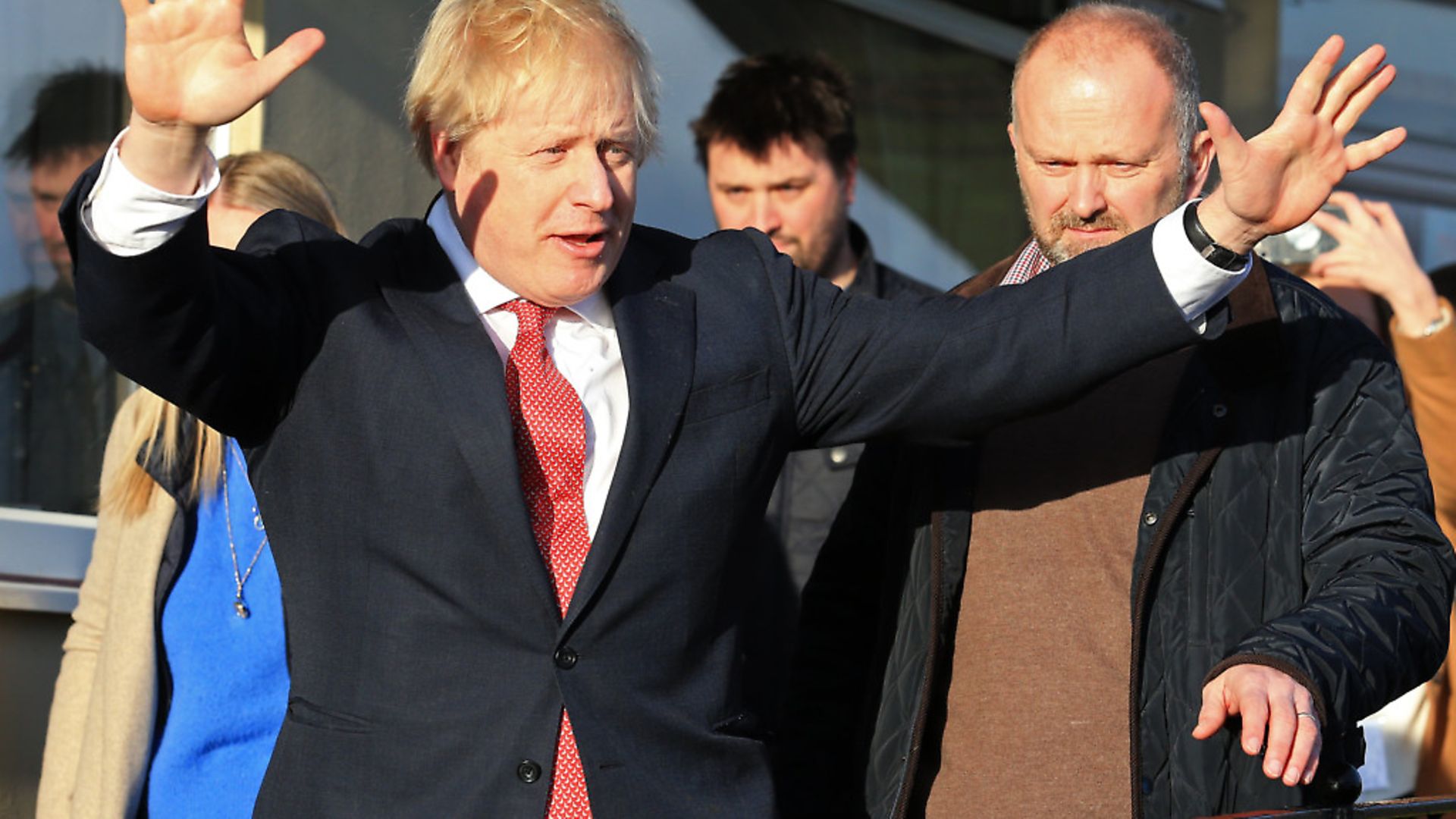
Former Conservative adviser BARNABY TOWNS says that conversations in Labour and the Lib Dems must return to working together to stop a second win for Boris Johnson.
In 91 years of the universal franchise, parliamentary majorities of 80 or more have rarely been overturned in one general election. The exceptions are 1935, 1959 and 1966. 1935’s National Government of 387 Tories and 34 supporting Liberal and Labour members — a majority of 149 — was transformed into a Labour majority of 146, after 10 years without a general election. In 1959, a 100-seat Tory majority was overturned by a four-strong Labour one in 1964, and 1966’s 96-seat Labour majority was replaced by a Tory majority of 30 in 1970. Landslide wins for the Tories in 1931; Labour in 1945; the Tories in 1983 and 1987; and Labour in 1997 and 2001; took more than one general election to overcome.
An 80-strong overall majority places Boris Johnson’s Conservatives tenth out of 23 in terms of majority size since men and women first voted on equal terms. And this victory will soon be bolstered by the government repealing the Fixed Term Parliaments Act, restoring to the prime minister the right to call a general election at any point during parliament’s five-year term. The government also will vote through a boundary review, adding seats to the Tories’ notional majority as constituencies are made more equal in population, adjusting for the average Labour seat having fewer electors than the average Tory one.
Westminster’s safe Tory Commons majority also ensures extending the franchise 16-year-olds, enacted for Scottish parliament and Welsh Senedd elections, will not occur for the next UK-wide general election. Meanwhile, the government will press ahead with controversial voter-ID plans, possibly deterring lower-income voters.
These incumbency advantages all tighten Johnson’s grip on power, possibly for two parliamentary terms. But there are other considerations that might weaken it. One such is that every government runs out of steam, especially those of relative longevity, such as the Conservatives after 18 years in 1997 and Labour following 13 in 2010. By 2024, the Tories will have been in power for 14 years; 19 by 2029.
Johnson faces other dangers. A recession after over a decade of albeit sluggish growth and any fallout from the Conservatives’ two approved options on Europe — a hard Brexit agreement with the EU or no deal exit — would be felt by a government that wholly owns the policy. Of course, in that event some Tory parliamentarians may be tempted to disown Brexit, but it is hard to see voters indulging them.
Another wild card is Johnson’s legendary self-serving survival instincts, which may prompt a U-turn by extending the transition period beyond the end of 2020, or softening Brexit plans, or both.
In turn, the principal opposition parties will soon take their first step to try to ensure that the government lasts one rather than two terms — four instead of five, if you count from 2010. Labour does this by electing a new leader in April; the Lib Dems in May. For better or worse, whom each party chooses will influence the length of this nationalist-populist Conservative administration.
Both Labour and the Lib Dems would do best to exploit the opportunities created by the new electoral coalition Johnson’s Conservatives are forging. In place of relying upon the bulk of professional, middle-class voters with a minority share of ‘working class Tories,’ the Conservatives now attract such groups equally, having shed some more highly-educated middle-class voters. This educational attainment divide means that in 2019, six in 10 voters with no more than GCSE qualifications voted Conservative, while only three in 10 who had earned a university degree did so.
It follows from the historic realignment taking place from class-based to identity politics, that under the first-past-the-post system, pro-Europeans must be united, just as the nationalist Leave vote stands together under the Tory banner.
For Labour, this surely requires selecting a Remain candidate as leader prepared to stand aside in seats where the Lib Dems are better placed to defeat Tories: it is unlikely that the party can capture sufficient numbers of Tory Remain seats to govern alone. Indeed, realignment may spell further Labour losses in its Leave-backing former heartlands. Pitching to the latter, as would be more likely under Lisa Nandy or Rebecca Long-Bailey, risks losing Labour’s Remain seats in London and the south to the Lib Dems.
Will Labour leadership favourite Keir Starmer draw a line under Labour’s failure to appeal to both sides of the Remain-Leave divide, instead cooperating with the Lib Dems to unite the pro-Europe vote? Uniting the nation’s Remain majority would counter Johnson’s nationalist coalition, conceivably even confining him to one term.
– Barnaby Towns is a former Conservative Party special adviser to William Hague.









